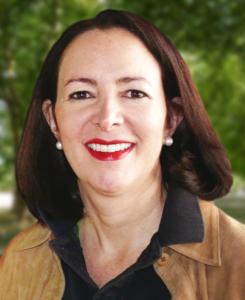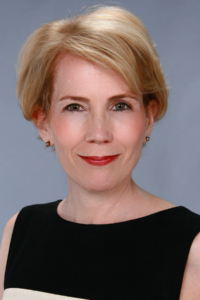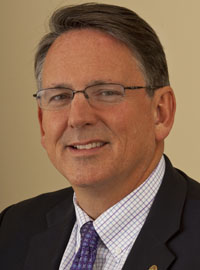 Doug Kennedy has always been committed to championing women in the workforce throughout his banking career, which began as a full-time teller working his way through college.
Doug Kennedy has always been committed to championing women in the workforce throughout his banking career, which began as a full-time teller working his way through college.
Not only did his teller position begin his career in banking, but it also earned him a wife. After college, he joined the training program of a local Connecticut bank, where he began by working in a branch. As the industry deregulated, banks were increasingly growing, and so did Kennedy’s career. He held leadership roles with a number of banks, most recently with Capital One where he was responsible for commercial lending in the mid-Atlantic and Northeast; he was also market president for New Jersey. Two years ago, he joined Peapack-Gladstone Bank as its president and CEO.
A Diversity Champion
Diversity has always been important to Kennedy.
“If there wasn’t diversity, the world would be a boring place, and you’d never progress beyond your own beliefs and capabilities,” Kennedy says. For him, diversity starts in his family life. “At the end of the day, I am aware of the diversity in my personal life; this life experience translates easily to what diversity means at the bank.”
Over his 35-year career, Kennedy has worked alongside many talented women and has championed women’s issues, including a job-share situation early in his career with two women whom he knew were top performers that the bank needed to keep.
“It was not well received at the time, and I really had to push for it since management feared that male clients wouldn’t appreciate it.”
Kennedy collected statistics that showed that the job-share employees were more productive than their male counterparts. Armed with the numbers, his human resources department invited him to an off-site meeting of 400 bank leaders, where he was able to show that it wasn’t a crazy, far-fetched idea. “The proof was in the numbers,” he says. “Having math to prove something as a banker elevates it from just an opinion to a fact.” His presentation helped pave the way for additional similar job-share situations — a huge advance at a time when the lack of technology made it harder for women to stay in the workforce.
Maintain Diversity
Currently, more than half of Peapack-Gladstone Bank’s employees are female, and six months ago, he was instrumental in starting a woman’s organization called LEAD (Leadership, Education, Advocacy and Development) which invites senior women in to speak about their careers and the challenges they have faced. The bank’s executive vice president, Karen Rockoff, acts as the senior female leader, and has created a curriculum that speaks to women’s needs and interests and is helping the company develop an agenda to support them.
His goals for the year include accessing female senior leaders in the organization who can organize talks around wealth and how to plan for retirement. “Women can have a gap with financial issues, and since that’s one of our core competencies, we want to deliver those insights to our employees,” he says. In addition, the curriculum will double as an outreach for other corporations with women’s groups.
Kennedy says that he approaches diversity from an enlightened perspective. “I just never have differentiated people on the basis of gender, starting with my wife and I, who have always viewed each other as equal partners. Just because I had the role of breadwinner didn’t give me any authority above hers managing the family and household. So with an equal partnership at home it has been a fairly natural approach when I come to work.”
He says that he would always consider the best person for a position — whether it is a man or a woman. “You have to look at each position and ask yourself, ‘What are the skills each candidate has, what are the skills that are needed, and do they align?’”
Advice for Leaders
Though he sees the prejudice changing, he believes that men would benefit from listening more. “If you are willing to listen to different perspectives, at the end of the day you will end up benefitting. Despite my experience and leadership, it doesn’t mean I have all the answers. We all gain by paying attention to diverse views.”
He says that the key to success in an organization is hiring people who are thoughtful, who have more knowledge about a particular subject and then tapping into that talent — no matter who it is – which will always end up delivering better results. Listening will help any leader find great ideas and solutions to problems.
“If everyone at our company had identical experiences and thoughts, we would be a colossal failure. Diversity is one of the principle assets of any organization and is essential to achieving our future success.”

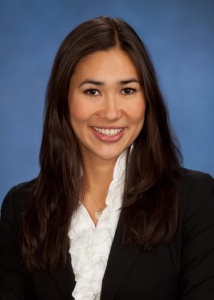
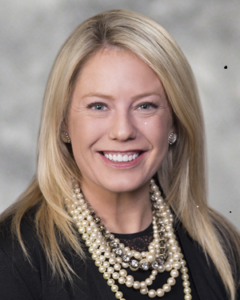
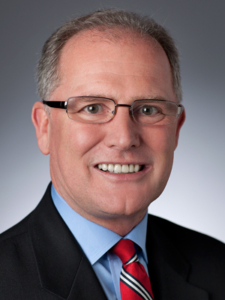
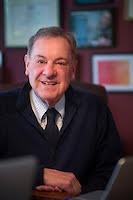
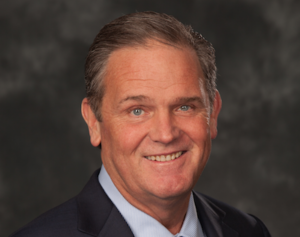 Leaders must always be conscious of the shadow they cast for their teams, says Bill Johnson, CEO of Citi Retail Services. “You can ‘talk the talk, but people watch you and your behavior, and what you do day in and day out is far more important than what you say. You should never ask anyone to do anything you wouldn’t do yourself, and you certainly should not behave in ways you wouldn’t want your team to emulate. The impression you leave behind is your shadow.”
Leaders must always be conscious of the shadow they cast for their teams, says Bill Johnson, CEO of Citi Retail Services. “You can ‘talk the talk, but people watch you and your behavior, and what you do day in and day out is far more important than what you say. You should never ask anyone to do anything you wouldn’t do yourself, and you certainly should not behave in ways you wouldn’t want your team to emulate. The impression you leave behind is your shadow.”